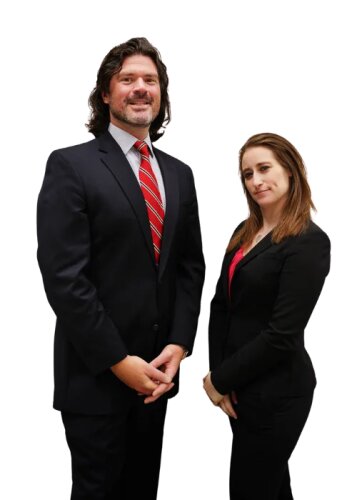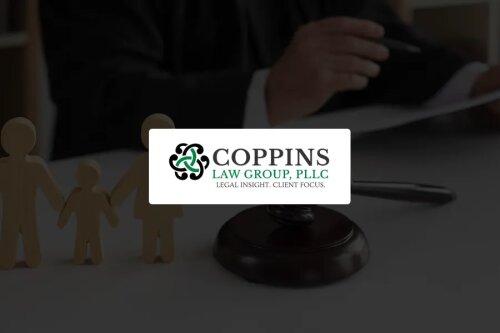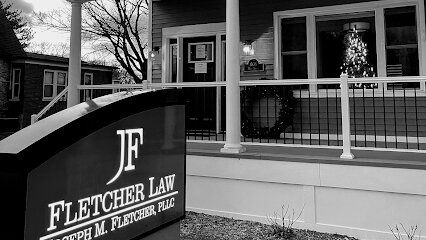Best Child Abuse Lawyers in New York City
Share your needs with us, get contacted by law firms.
Free. Takes 2 min.
Free Guide to Hiring a Family Lawyer
List of the best lawyers in New York City, United States
1. About Child Abuse Law in New York City, United States
In New York City, child abuse and neglect are primarily governed by state law, with city agencies carrying out enforcement and protective services. The key framework comes from the New York State Social Services Law and the Family Court Act. Protective services are aimed at keeping children safe while preserving families when possible. Local agencies like the Administration for Children’s Services (ACS) handle initial investigations and ongoing services in New York City.
There are two parallel tracks in this area of law. Civil protective proceedings in family court decide safety and custody issues, while criminal laws address offenses against a child. An investigator may determine that a child has been maltreated or neglected, which can lead to services, supervision, or removal from the home. In other cases, criminal charges may follow for specific acts against a child.
Practical impact for New York City residents is the possibility of protective orders, temporary custody decisions, mandatory services like counseling or treatment, and in some cases foster care placement. Understanding both civil protections and potential criminal implications helps families navigate the system more effectively.
According to the New York State Office of Children and Family Services, protective services aim to safeguard children while preserving families whenever possible.
For authoritative guidance and city specific procedures, see official resources from the New York City Administration for Children’s Services and the New York State OCFS.
Useful official sources:
- New York State Office of Children and Family Services (OCFS)
- New York City Administration for Children’s Services (ACS)
- New York Courts - Family Court
2. Why You May Need a Lawyer
NYC residents may need an attorney in several concrete, real world scenarios related to child abuse and protection matters. Below are common situations where legal counsel can make a difference.
- A parent faces an ACS investigation that could lead to removal of the child or a safety plan. An attorney can advise on rights, interview preparation, and best steps to minimize disruption to the family while ensuring child safety.
- A mandated reporter or professional receives a report about a child and fears inaccurate findings. A solicitor can help challenge erroneous conclusions and protect professional obligations during the process.
- A child or parent seeks protective relief from the Family Court, such as an order of protection or temporary custody. A lawyer can file motions, gather evidence, and present arguments in court.
- A relative or foster caregiver pursues licensing, placement, or guardianship with ACS. Legal counsel can navigate licensing requirements, safety plans, and placement decisions.
- A parent is charged criminally with endangering the welfare of a child or related offenses. An attorney is essential for the criminal case and for how it interacts with any ongoing protective proceedings.
- A family is negotiating visitation, custody, or consent for medical or educational decisions during an abuse or neglect investigation. An attorney helps protect long term parental rights and the child’s best interests.
3. Local Laws Overview
The following three statutes are central to child abuse and protection issues in New York City. Each governs a different aspect of how abuse and protection are identified, investigated, and resolved.
- Family Court Act (FCA) - Governs the procedures and remedies in family court for cases involving custody, abuse, neglect, and protective orders. The court handles protective orders, permanency planning, and related family matters in NYC.
- Social Services Law Article 6 - Defines protective services for children and sets the framework for reporting, investigation, and services when neglect or maltreatment is suspected. It establishes roles for local social services districts and outlines the authority to provide services to families.
- Penal Law (Endangering the Welfare of a Child) - Criminal offense under which specific acts against a child can be charged. This links to protective actions and can influence concurrent civil proceedings. For example, Penal Law section 260.10 addresses endangering the welfare of a child.
Recent trends in New York State and New York City emphasize kinship care and enhanced family preservation services, with a growing focus on reducing unnecessary out of home placements. Agencies increasingly use preventive and in-home supports before pursuing removal, when safety permits.
Helpful official references for these laws and procedures include:
- OCFS - Protective services, licensing, and state guidance
- ACS - NYC child welfare services, investigations, foster care
- Penal Law 260.10 - Endangering the welfare of a child
4. Frequently Asked Questions
What is considered child abuse under New York law? The state distinguishes abuse and neglect as defined in the Social Services Law and administered through protective services.
How do I report suspected child abuse in NYC? Reports can be made to the local child protective agency or NYS mandated reporters can contact the appropriate authorities. See ACS guidelines for specifics.
When can a child be removed from the home? Removal occurs when safety concerns cannot be managed with services, and the court grants order of removal or custody arrangements.
Where do I find the forms for protective orders in NYC? Family Court has standard forms; the official NYC Courts site and ACS provide guidance on required documents.
Why might a protective order be issued against a parent? To ensure immediate safety while the court resolves custody and visitation issues.
Can a parent contest a CPS finding? Yes, a parent can challenge findings and request a hearing or review through the appropriate legal channels.
Should I talk to a lawyer before speaking with child protective services? It is prudent to consult an attorney before giving statements that may affect rights or future court outcomes.
Do I need a lawyer for foster care placement disputes in NYC? Yes, representation helps navigate the licensing process, safety plans, and potential placement options.
Is there a statute of limitations for child abuse cases in New York? Civil protective actions are ongoing within the context of a family court case; criminal cases have their own statutes of limitations depending on the offense.
How long do child protection cases last in NYC? Case durations vary; simple actions may resolve in a few months, while complex cases can extend over a year or more.
What is the role of the NYC ACS in these cases? ACS conducts investigations, provides services, and coordinates with families, schools, and medical professionals.
How much does legal representation cost in NYC child abuse cases? Costs vary by attorney and case complexity; many offer initial consultations and flexible payment arrangements.
5. Additional Resources
Access to reliable, official information can help you understand rights and options. The following resources provide authoritative guidance and contact information.
- New York City Administration for Children’s Services (ACS) - NYC agency that investigates child abuse and neglect and administers foster care and preventive services. ACS official site
- New York State Office of Children and Family Services (OCFS) - State level oversight, licensing, and policy for child welfare services, protective services, and prevention programs. OCFS official site
- Child Welfare Information Gateway - Federal resource with guidance on child abuse and neglect, protection services, and family court processes. Child Welfare Information Gateway
6. Next Steps
- Identify your concern and jurisdiction. If there is an ACS involvement in NYC, start by noting dates, reports, and interactions with ACS caseworkers.
- Gather key documents. Collect the police report, school records, medical notes, court papers, and any prior protective orders relevant to the case.
- Determine your legal needs. Decide whether you need counsel for protective orders, custody disputes, licensing issues, or criminal defense related to abuse allegations.
- Research NYC child abuse lawyers. Look for attorneys with specific experience in Family Court and ACS proceedings, not just general criminal or divorce lawyers.
- Schedule consultations. Ask about approach, likely timeline, and cost structures. Use initial meetings to assess compatibility and strategy.
- Prepare questions for consultations. Focus on experience with NYC Family Court, expected timelines, and potential outcomes for your case.
- Decide on a legal plan and cost agreement. Confirm retainer amount, hourly rates, and any alternative fee arrangements before proceeding.
Lawzana helps you find the best lawyers and law firms in New York City through a curated and pre-screened list of qualified legal professionals. Our platform offers rankings and detailed profiles of attorneys and law firms, allowing you to compare based on practice areas, including Child Abuse, experience, and client feedback.
Each profile includes a description of the firm's areas of practice, client reviews, team members and partners, year of establishment, spoken languages, office locations, contact information, social media presence, and any published articles or resources. Most firms on our platform speak English and are experienced in both local and international legal matters.
Get a quote from top-rated law firms in New York City, United States — quickly, securely, and without unnecessary hassle.
Disclaimer:
The information provided on this page is for general informational purposes only and does not constitute legal advice. While we strive to ensure the accuracy and relevance of the content, legal information may change over time, and interpretations of the law can vary. You should always consult with a qualified legal professional for advice specific to your situation.
We disclaim all liability for actions taken or not taken based on the content of this page. If you believe any information is incorrect or outdated, please contact us, and we will review and update it where appropriate.
















